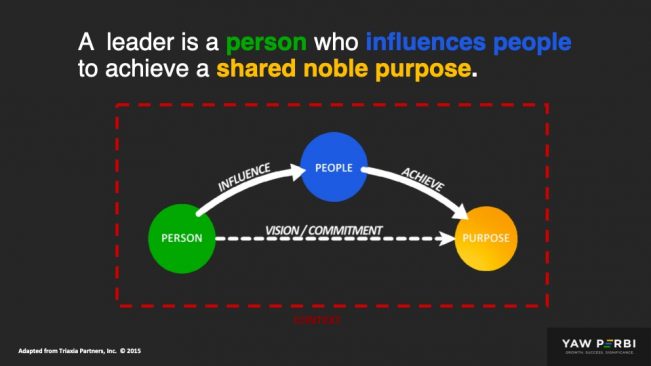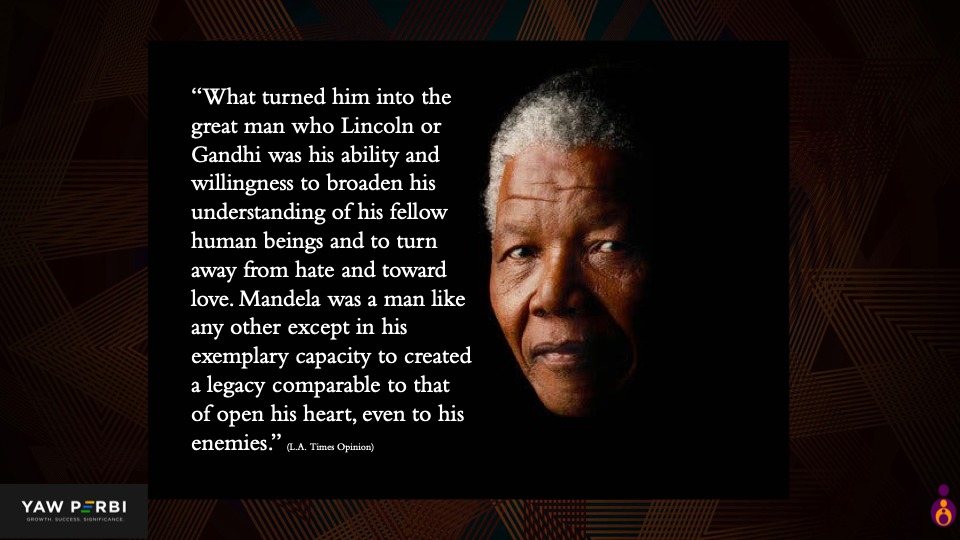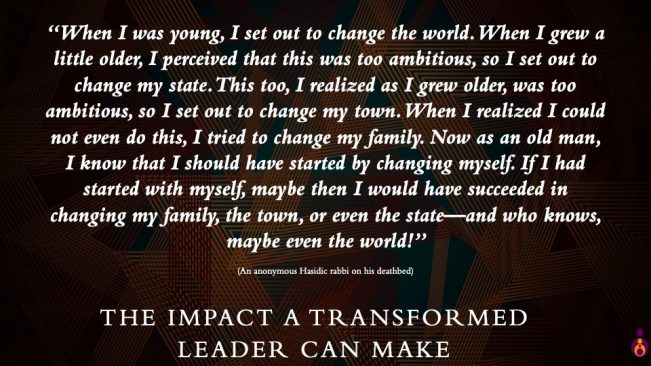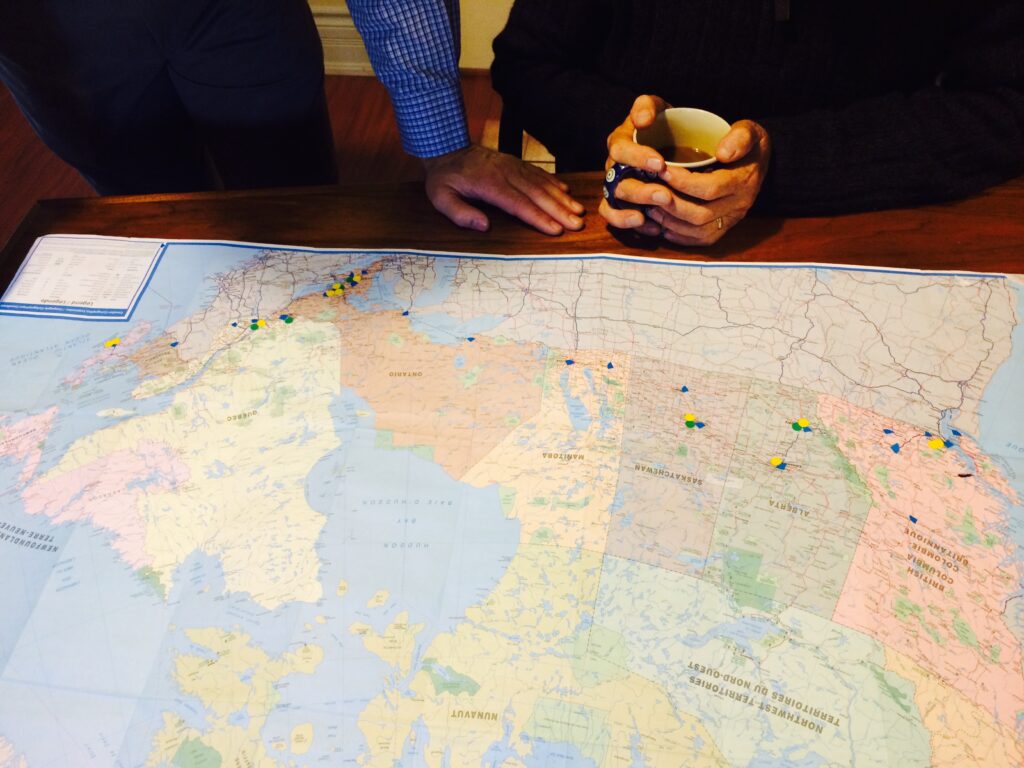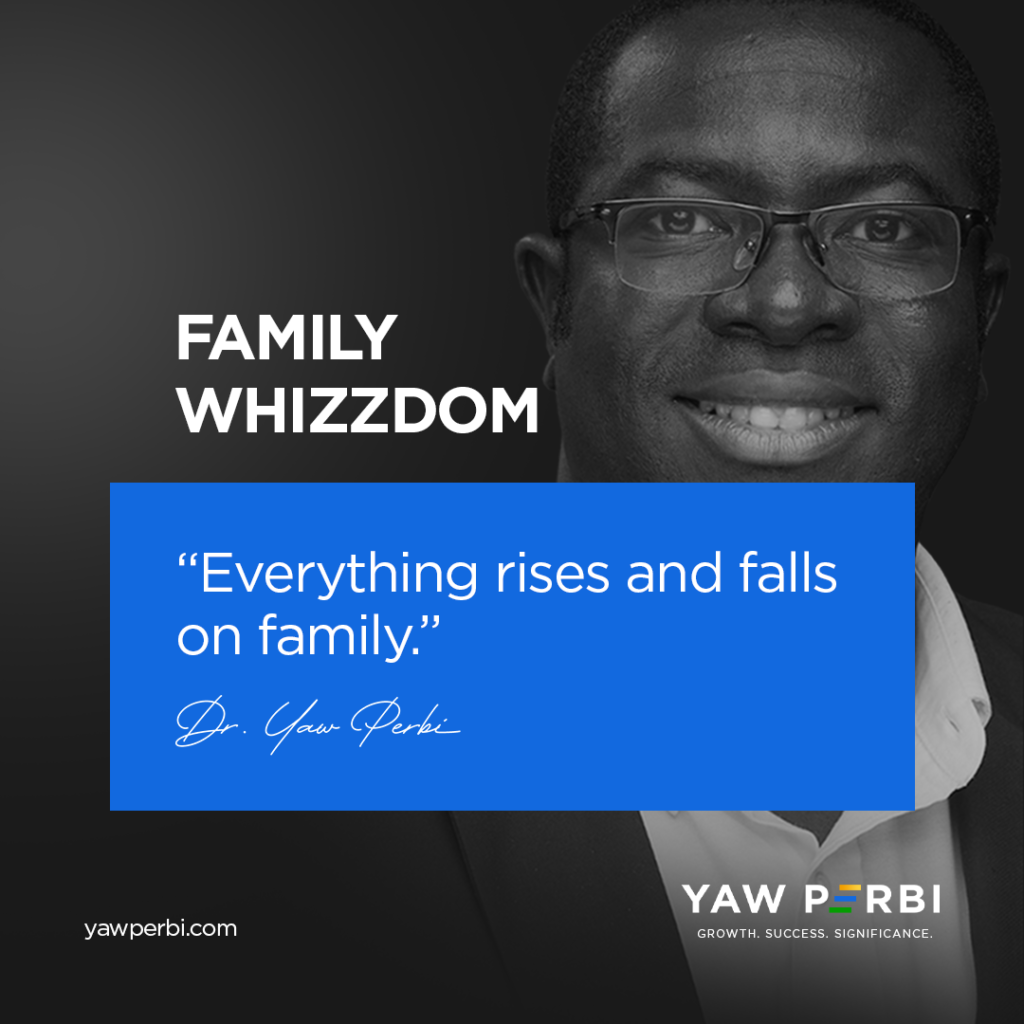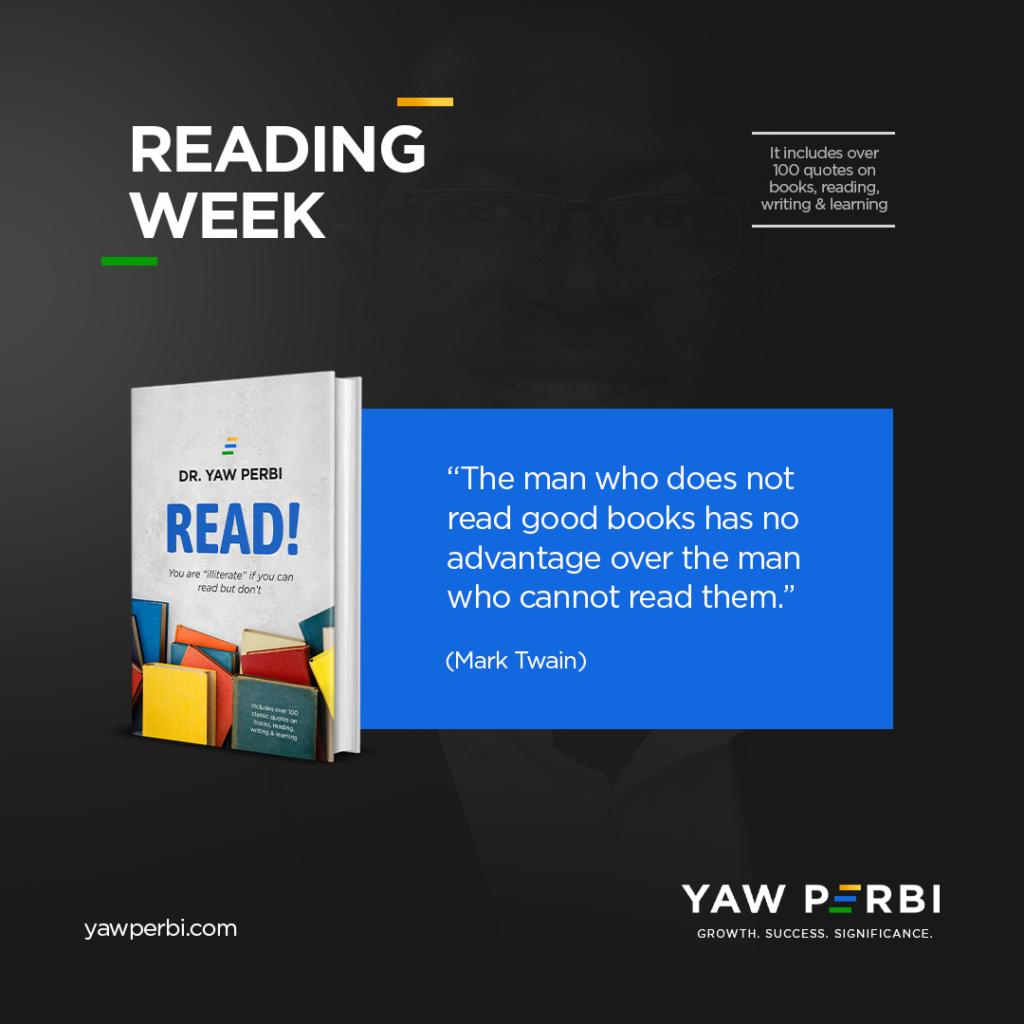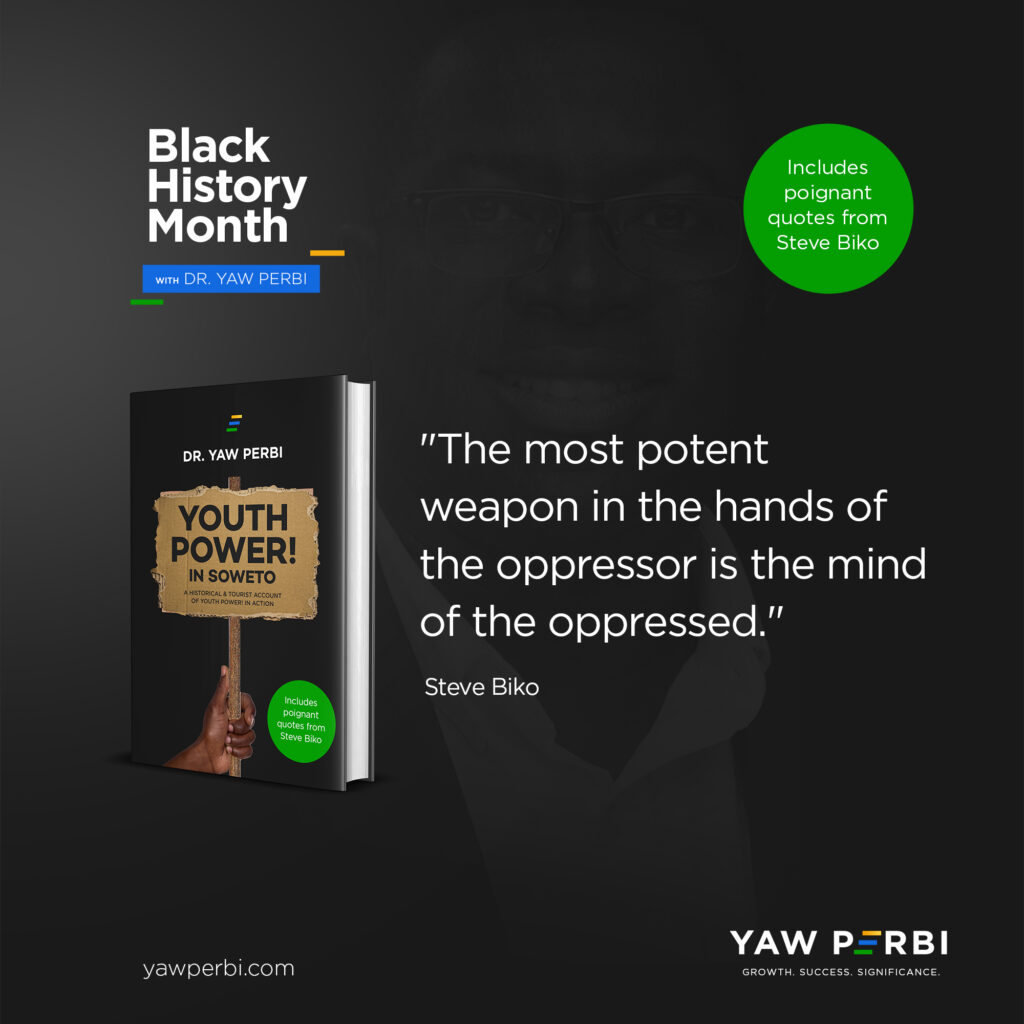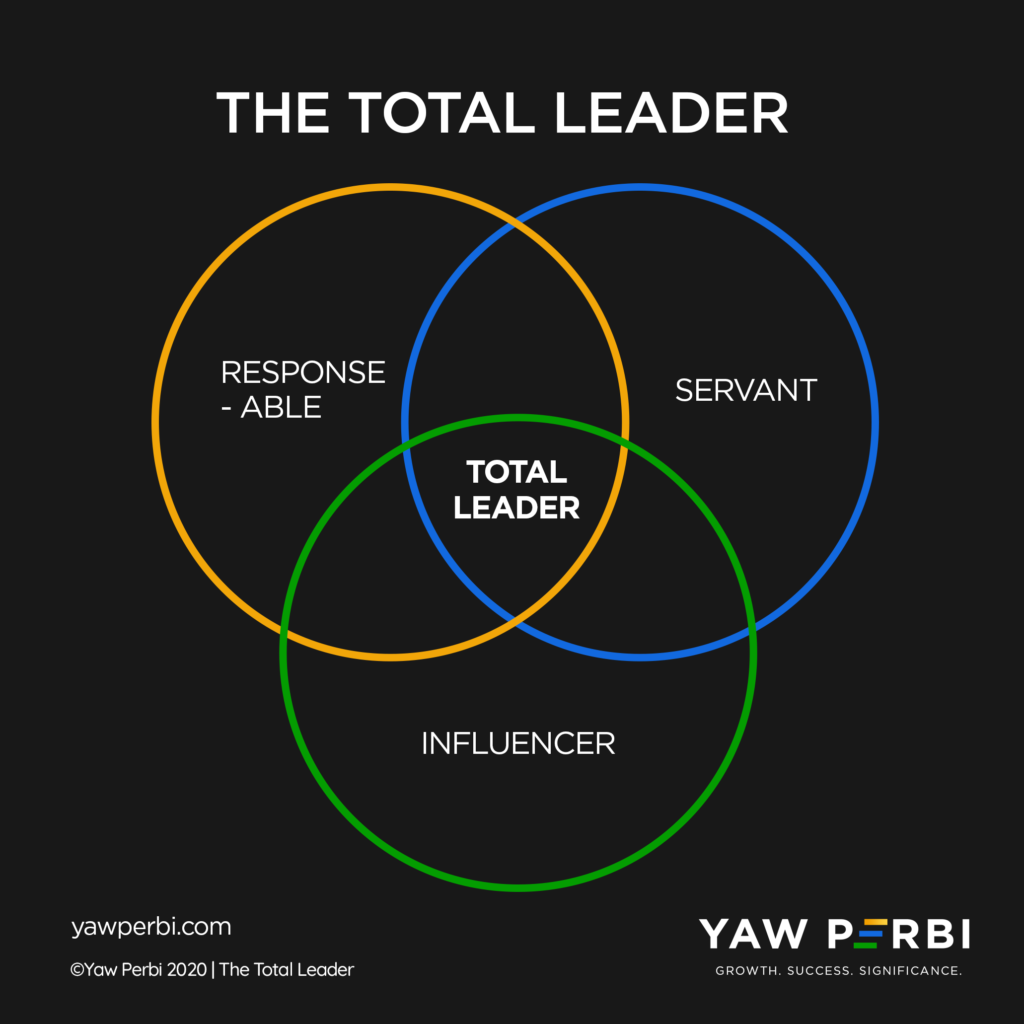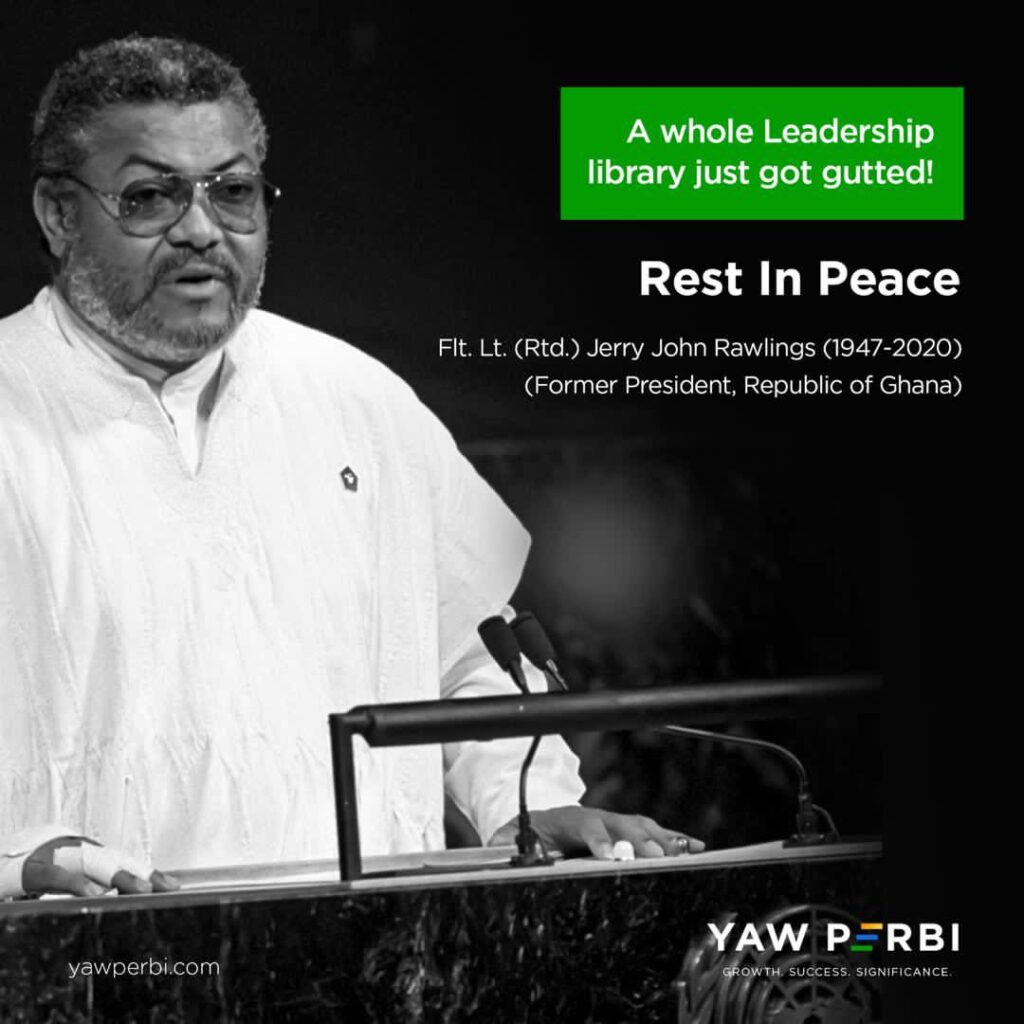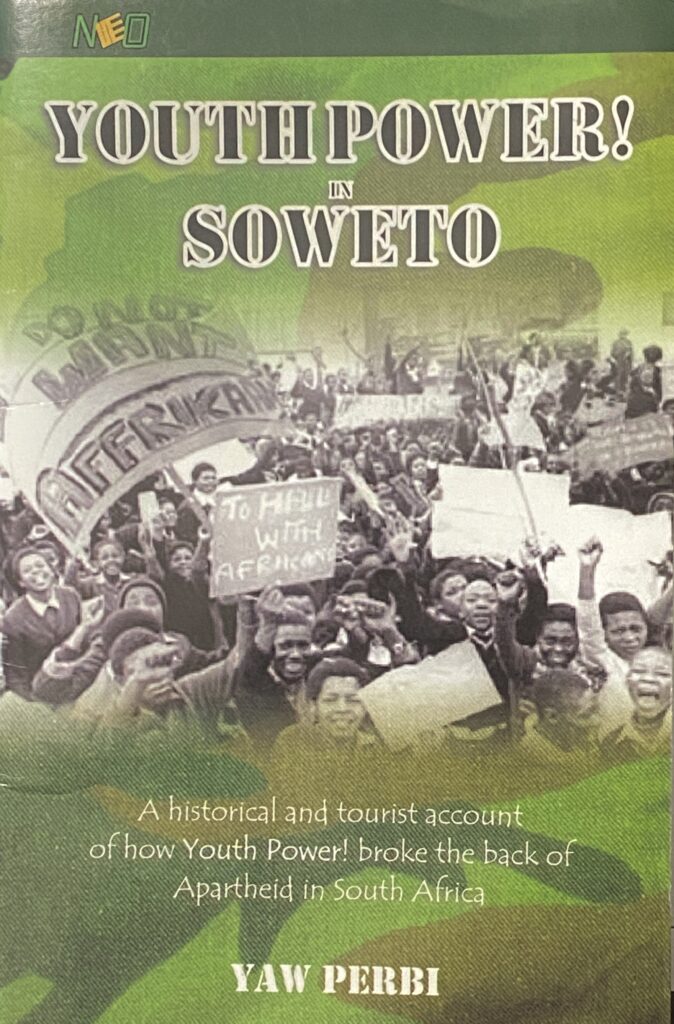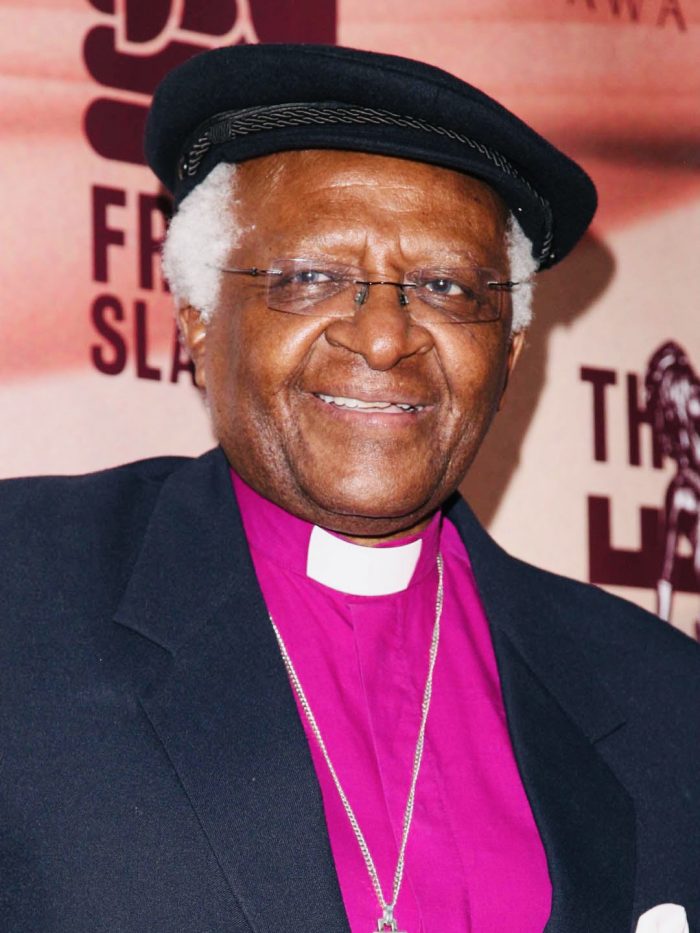
From One Legendary Leader in the Evening to Another One in the Morning–a Tribute to Archbishop Desmond Tutu

The beloved late Desmond Tutu (photo: Yaw Perbi does not own the rights to the picture and owner is unknown).
I was emailed this incredible tribute by a mentor of mine in the Lausanne Movement, Dr. Michael Cassidy, to his late friend Archbishop Desmond Tutu, that I just had to share as a student of leadership. What impresses you most? May many Cassidies and Tutus be raised in our generation!
Tribute to Archbishop Desmond Tutu
from
Michael Cassidy
Founder, African Enterprise
Honorary Chair, The Lausanne Movement
Archbishop Desmond Tutu, one of South Africa’s greatest ever luminaries, both ecclesiastical & national, has gone to be with His Lord. People from every race, sector & background will mourn his passing, because he was a man for all who stood without fear or favour for the human rights of all.
Perhaps it is as an almost unequalled African champion for human rights that he will be most fondly & universally remembered. And it was for this that he justly became a Nobel Laureate.
In South Africa his immensely courageous fight against Apartheid earned him the fearsome opprobrium of the National Party Government, the settled hostility of most whites, but the thankful adoration of all people of colour, as well as more liberal whites. In fact, from the church, his voice during those dread years, was by far the most audible, & his persona by far the most visible. This audibility & visibility constituted a true achievement of note & contributed powerfully to the final fall of Apartheid.
As far as we were concerned in African Enterprise, Desmond was a friend to our work & contributed powerfully to conferences we organized or helped organize such as SACLA (South African Christian Leadership Assembly), the NIR (National Initiative for Reconciliation), & The Rustenburg Conference which represented the whole church spectrum & spoke to the whole range of political leadership from far left to far right.
At a personal level I also counted Desmond a good friend. He commended numbers of my books, including my recent Memoirs, & wrote the Foreword to my book The Politics of Love. We also shared in significant ministry together in African Enterprise’s city-wide mission to Kigali, Rwanda, a year after the genocide. That was very moving. I especially remember ministering with him in terrifying cells of pitifully jammed together prisoners. And then being with him as he collapsed in tears in one church filled with skeletal remains of murdered victims. There I saw his profound compassion poured out. Even as we tried to hold him up. Such shared moments one can never forget, culminating in our sharing the evangelistic preaching to a packed stadium in our final service.
And all this Desmond could do in spite of the fact that we had strong theological differences on certain issues such as Universalism & Gay Marriage. But he never allowed those to damage our friendship. And neither did I.
Thankfully in our recently produced documentary, The Threatened Miracle of South Africa’s Democracy, Desmond features strongly, both during the Apartheid years, but even afterwards when he severely scolded the ANC of Zuma’s time saying, “I’m warning you; I’m WARNING you; you are a disgrace!” No one else had that truly prophetic courage, credibility & ability to speak to all sides, all the time, AND be heard!
Yes, we will miss him… “the Arch”, as he was affectionately known, even by the media. But his legacy of prophetic witness will live on wherever South Africa’s story is told, & wherever racial justice & the Human Rights struggle are in purview.
To his dear, always supportive wife Leah, to his family, to his ministry colleagues, especially in the Anglican Church, we in African Enterprise world-wide extend our deepest sympathies, & assurances of heart-felt prayers at this time.
Dear Desmond — Beloved Arch — thank you for blessing us with your life. Au revoir. We will see you in the Morning.
Michael Cassidy
Founder of African Enterprise
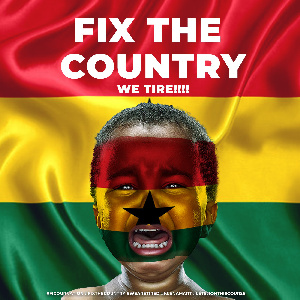
What #FixTheCountry and #FixYourself Both Got Wrong
Earlier this year, my homeland Ghana was in the news again, trending on social media for all the wrong reasons. Citizens were tired of apparently failed campaign promises and mounting socioeconomic challenges from illegal mining destroying our ecology to pot holes, no, man holes, in our streets. All of these complaints were bundled together in a #FixTheCountry campaign that made a dent in Twittersphere. Some ill-advised government sympathizers then began a #FixYourself counter-tweet, which only added insult to injury. A much more compassionate and smarter response, which might’ve calmed nerves, would’ve been #LetUsFixItTogether but be that as it may, as a student of leadership let me show you how both sides got it wrong in the first place.
LEADER DEFINED
There are officially over 360 definitions of leadership. The simplest yet most profound one that makes the point I seek is this: a leader is a Person who influences People to achieve a shared noble Purpose. Although there are three ‘P’ players in this equation, the tendency for most, and not just Ghanaians, is to focus on the third ‘P’ (Purpose), in this case the country that needs fixing. That makes sense because it is often what pinches and the thing we would’ve been sweet-talked about during the animated political campaigning prior to elections. So the citizenry said #FixThePurpose and what some government functionaries did was to then shift what needed fixing to the second ‘P,’ the people i.e. #FixThePeople.
As I prepared to speak to alumni of the Central Leadership Programme a couple of weeks ago on ‘The Impact a Transformed Leader Can Make‘ it dawned upon me heavily that while both sides of the hashtags might bee sincere, they are both sincerely wrong. The most important ‘P’ that fixes the other two ‘Ps’ is the Person of a leader! We can cry #FixTheCountry all year long and hear a minor counter-chorus of #FixYourself all year round but until the primary hashtag and passionate focus becomes #FixTheLeaders, it’s all a waste of time, energy and a whole lot of other scarce resources!
PRINCIPLES AT WORK
You might not like what I’m saying, or even not believe in it, but the thing with principles is that they are timeless, universal truths that don’t care a hoot what you and I value. As the famous director of the 1956 epic movie The Ten Commandments said, we cannot break commandments, we can only break ourselves against them. Until our leaders are transformed, the people will not be transformed, neither will the situations that need transformation. In other words, until and unless the leaders are fixed, the people will not be fixed and the problems will not be fixed. It doesn’t matter how sincere and passionate we are about the latter two, we would ironically only be breaking ourselves against leadership principles, rather than fixing anything.
In transformational leadership, the following principles hold true:
Principle #1: Transformational Leaders are transformed first, then their community (from family to town/city to district to region to country and continent)
Principle #2: The Person (of a Leader) gets fixed first, then the People, before the Purpose
Principle #3: Only deeply transformed leaders can deeply transform society.
PORTRAITS OF THE POINT
In my talk, I shared examples of the impact transformed leaders have had on society, irrespective of the era, whether 2,000 years ago like Zacchaeus, 200 years ago like William Wilberforce or barely 20 years ago like Nelson Mandela. When Zacchaeus, the short and filthy rich chief tax collector, encountered the rabbi Jesus Christ, he was transformed. That’s what led to his unforced famous declaration: “Look, Lord! Here and now I give half of my possessions to the poor, and if I have cheated anybody out of anything, I will pay back four times the amount.”
What do you suppose was Zacchaeus’ impact as a transformed tax leader (say, as the head of the Ghana Revenue Authority)? If every African politician since 1957 said and did similarly, not only will we hardly have the poor amongst us, our socioeconomic indicators will drastically improve overnight as Swiss banks and vaults are emptied swiftly! That’s the impact a transformed leader (#FixedLeader) can make in transforming a people and a context. This brings to the freedom two more faith-based transformational principles: #4 No one can truly encounter the transformational Jesus and not be transformed and #5 No one can be truly transformed by the transformational Jesus and not transform society.
These principles are again exhibited in the modern story of William Wilberforce and the contemporary biography of Nelson Mandela. You might want to check out the video of the said talk to appreciate how the transformative societal impact of both, also came from the fountain of their personal transformation as leaders. For Mandela, see the quote below that summarizes well his transformation and transformative leadership:
Former South African President Thabo Mbeki makes the point for me about fixing leaders first to get the product in society we want in this video. He challenges incumbent African presidents as follows: for whatever kind of Africa we want, the question is, “what sort of leadership do you produce to get that kind of result?”
It’s easy to be impressed by Wilberforce’s purpose, which he influenced thousands to share in: ““God almighty has set before me two great objects: the abolition of the slave trade and the reformation of manners.” But what you might not know is that his wasn’t always a noble story. Although young and gifted, his biographer Eric Metaxas wondered, “But to what would he rise? For beyond making it to Parliament and succeeding there …he had no dreams. He was ambitious and he was talented, but he was also directionless.” Years later Wilberforce himself remarked, “The first years I was in Parliament I did nothing—nothing to any purpose. My own distinction was my darling object.” What changed everything and began a life-long pursuit of the abolition of the slave trade and emancipation was how all that pre-occupation with himself, his status and ‘success’ began to change in 1784 (at 25) when he started to explore the religious faith of his youth. Again, the transformed Person he became, influenced a People to transform, and together they transformed and reformed the world!
CONCLUSION
Citizens are powerful. “Power to the people,” was the mantra in the revolutionary days of the 1980s in Ghana. I was a only a lad but I still remember. And it is true. But leadership is incredibly important, as everything rises and falls on it. True, citizens (People) can use their thumbs to vote leaders (Persons) in and out of office and press their demands on them. True, citizens can campaign ad nauseam about the plights and dreams (Purpose) that matter. All I’m asking is that if principles are true and cannot be broken, then our strongest and loudest campaign should be #FixTheLeaders. If we do, the people will be fixed (#FixYourself) and so will the country (#FixTheCountry). There’s no other way around this. If we do not go this route, come 100 years from now, those two #FixTheCountry and #FixYourself hashtags will still be trending. We would only have have successfully recycled unfixed leaders of fixed colours every four years while the country itself remains unfixed. Leaders must fix themselves first, then serve and influence the people to be fixed and together, fix the country.
PS.
As someone with an advanced degree in leadership and being a leadership practitioner across various industries and on every continent, I do reckon that this issue is nuanced. It takes an entire ‘leadership ecosystem’ and multi-dimensional, multi-directional processes. Yes, I agree there has to be 360 degree leadership. We can play around with all the possible permutations there are but we fool ourselves without this primary transformed/transformational leader —> transforming people —> transformed society piece. It is akin to what will be referred to in Chemistry as ‘the rate determining step.’ If that (#FixTheLeaders) doesn’t happen and in ample time and measure, we will still be arguing about #FixTheCountry and #FixYourself 100 years hence. We’re in a fix (pun intended).
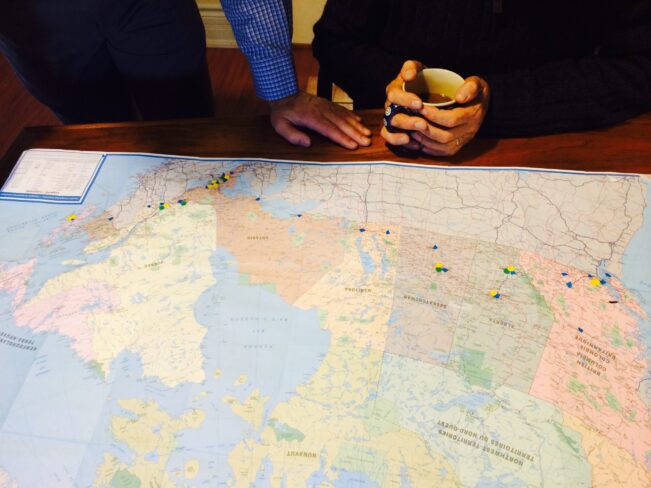
Integrity: it’s not that complicated.
One of the most sold yet least bought commodities in the leadersphere is integrity. There’s hardly a set of corporate core values one comes across without it showing up somehow. What’s even more intriguing is how mystical people make it sound and look. In fact, I’ve heard politicians throw it about in a way that’s made me wonder whether even I understood what the heck it is. But hear me good: integrity is not that complicated.
Although there are so many definitions of it, I’ll share with you one that is as simple as primary school math and then show you a simple litmus test of integrity. Integrity comes from the Latin root integritas, which means whole, complete, entire, unbroken. It’s the same word from which we get the word integer. See, I told you it’s as simple as grade school math! What are integers? Positive and negative whole numbers.
Integrity then basically means you’re whole, not divided. The opposite of that would be fractions; not whole. You’re fractionated, broken up.
What’s the litmus test I speak of? Integrity is not that complicated. How can you tell I’ve got it? How do I know you have integrity too? I don’t need a KYC (know your client) form or a testimonial from a referee or even your long list of impressive achievements. Integrity is keeping your word–not letting your word fall to the ground, not breaking your word. Integrity is being what you say you are and doing what you say you’ll do.
BEING WHAT YOU SAY YOU ARE
Let’s consider two guys, Kofi and Yaw. If Kofi says, “I lie, I deceive, I steal.” Kofi has low morality, by that particular society’s general standards of acceptable behaviour in that era. When Yaw says, “I abhor lying, I don’t deceive, I never steal,” he has high morality.
BUT, if Yaw goes on lying, deceiving and stealing then Yaw is not a person of integrity. He doesn’t keep his word. However, if Kofi goes ahead to lie, deceive and steal, although he has low morality he actually is a person of integrity (albeit in a very twisted way) because he keeps his word. He said he will do these things and he does. Integrity is being what you say you are, being what you say you will.
DOING WHAT YOU SAY YOU’LL DO
Again integrity is keeping your word, this time, by doing what you say you’ll do. I still remember the shock of a new friend I made when I showed up at her place exactly when I promised I would. She was brutally honest with me that she wasn’t expecting me to keep my word. I was hurt that he would think so lowly of the human race, more specifically the XY chromosomic Homo sapiens, and even more specifically a Christian gentleman. But you couldn’t blame here–she had experienced too many people promising and failing to deliver all too often.
Integrity is keeping your word. Of course, sometimes we give our word and due to extenuating circumstances we’re not able to keep it (we can’t control everything, especially the elements and emergencies). If you are a person of integrity, however, although you are not able to keep your word you still honour your word by reaching out in advance (preferably in advance), apologizing for not being able to and renegotiating to make things right.
My editing team for the weekly PEP Talks I do expect my videos to get to them by Sunday night each week. I had such a long day last Sunday that I realized there was no way I was going to be able to make a good video to send at the end of the day. To keep my integrity, however, I sent a note to the team saying, “Hey, it’s been a very tiring day and I wouldn’t be able to give this video my best shot. I’ll work on it tomorrow instead and send it to you.” I was unable to keep my longstanding word, but I did well to still honour it. I wish that were always true. Sometimes I’ve failed to keep my word and gone on with life as if I never gave my word in the first place. That is not integrity–not matter how much I claim to have it!
I get amazed how many people give their word with no intention whatsoever to keep it! And then there is the category of people who give their word intending to keep it but when they are unable to don’t see the big deal in still honouring their word–apologizing and redressing it. I’ve had to correct several people I work with to the point that now they not only keep their word, but if for some reason they are not able to, they now honour it by apologizing, letting me know and re-negotiating.
By the way, when we make plans and don’t keep it (even if they don’t involve anybody else), we violate our integrity. Many of us do not take our own word seriously; we don’t take ourselves seriously. I insist on 100% integrity with my coaching clients when they give their word about what they commit to doing in between our sessions.
Inasmuch as I want to keep this article to the personal level, I cannot help but take a swipe at politicians who are notorious for giving their word during political campaigns only to take office and not only fail to keep their word but sometimes even pretend they have no clue what the citizenry and civil society organizations are reminding them about and trying to hold them to account for! There is a joke about how before elections they call us “the masses.” When they win and we make our demands of them we become “them asses!” In my short lifetime, on both sides of the Atlantic, I have met very few politicians worth their salt. Politicians with integrity are almost extinct.
THE BOTTOMLINE
So integrity isn’t this highfalutin, mystical, metaphysical thing. It’s not that complicated. It is as simple as primary school math: integers. What shows you have it or not is as simple as keeping your word. Period. Nothing more, nothing less.

Everything Rises and Falls on Family.
My mentor likes to say, “Everything rises and falls on leadership.” This is true but there is something even more fundamental that all leadership itself rises and falls on. I say, everything rises and falls on family first. At least five reasons come to mind why:
1. CREATOR PERSPECTIVE | God is Family
“In the beginning, God…” That’s how the entire holy scriptures begin in Genesis 1:1. I have a theistic worldview as a bonafide African, and a Biblical one at that as an African Christian. My understanding is that everything is created by a Supreme God and that He created human beings in His image and likeness. That tickles my theological senses a lot because according to the Christian view, GOD IS FAMILY. At the centre of the universe is family–Father-Son-Spirit. At the core of cosmos is a love, relationship–Love, Lover and Love itself. Everything rises and falls on love, everything rises and falls on God, everything rises and falls on family.
Of course we could go into how God created the first family after declaring “it is not good for man to be alone,” how throughout scripture and history God chooses a person and their family to work through, the many scriptures that seek to protect, preserve and promote family etc. Even when God decided to wrap Himself in human flesh and move into our human neighbourhood in the person of Jesus Christ, he chose to implant himself in a family–Mary and Joseph’s. Everything rises and falls on family.
2. CRADLE PERSPECTIVE | Parents shape world shakers
Have you ever heard the proverb, “The hand that rocks the cradle rules the world”? That is 1865 wisdom unleashed on the world through the refrain of a William Ross Wallace poem that praises parenthood as the preeminent force for change in the world (see here). Of course, at the time it was written, nearly two centuries ago, the work of raising children was mainly seen as the role of the mother but we know all too well it takes two to tango. Both father and mother have a role in rocking the cradle, even procuring that cradle in the first place. Parents and the wider family, shape the people who would shake and move the world, for good or ill. These two PhDs Barbara Riggs and Cynthia Tweedell don’t mince words in their Marriage and Family textbook: “The strongest influence in your life will stem from family.” Period. Everything rises and falls on family.
3. CELLULAR PERSPECTIVE | Family is the unit of humanity
So yes, “it is the hand the rocks the cradle that is the hand that rules the world” but alas! today, everyone wants to change the world; no one wants to start at home. The irony! Not only does everything rise and fall on family because the hand that rocks the cradle rules the world but also the family is the basic unit of society just as the cell is the basic unit of biological life or the atom is for all matter. Yet somehow we think we can flourish in the corporate world, government and such without adequately addressing the lowest common denominator!
If you think one cell gone bonkers is no big deal think again about cancer. That’s all it is. Cells gone bonkers, multiplying unhealthily–and eventually spreading that craziness (metastasis). Sooner or later a whole monarch or president or parent dies, all because of a cell gone awry. Everything rises and falls on family, that one cell.
4. CALCULATION PERSPECTIVE | Hindsight is 20/20
Today’s C-level executive claims “It’s not the quantity of time but quality that I spend with my family that matters.” This is a fallacy. Family costs what it costs and it doesn’t go on sale! The question is if we are willing to pay the price.
Even for the richest and most popular of leaders, when they assess their lives, doing a calculation of all they’ve spent their talents and energies, time and finances on, the truth remains that, “There’s no one who on their deathbed has been heard to say, “I wish I had spent more time at work.”” What folks should’ve known first, they only find out last: Everything rises and falls on family.
5. COVID-19 PERSPECTIVE | The only place to be/go has been home.
When our all-important selves on our all-important endeavours were brought to a screeching halt by the latest Coronavirus pandemic, where did we all head? Home! When literally every economy and society locked down, where did we stay put and be safe: with family! I’ve never seen so many advertisements on primetime television asking people to stay home in my life! Heroes, according to the World Health Organization, stay home! Ha! Who would’ve thought that day would ever come!
Even high-flying pilots have been grounded, literally, at home. I haven’t flown in a year–that is crazy considering that there were times in the last few years when I did as many as 70 flights in the year! My VIP airport lounge passes and platinum airline and hotel statuses have been rendered useless. The only thing that has mattered most has been the people many of us paid the least attention to prior to COVID-19: family. Of course, some families have turned at each other and self-destructed because of the very forced proximity that should’ve been a blessing!
Crucibles reveal what’s most important. After this pandemic is over, we would need insignia to remind us, lest we forget, everything rises and falls on family.
THE MILLION DOLLAR QUESTION
So why then do many, too many, in our generation tend to put family on the backburner? What if we all invested in our families the same degree of seriousness we put into our professions or in climbing the corporate ladder? I’ve been amazed at how many C-level executives are executing vision and mission statements and strategic foci for their organizations but have not given a thought to forging a simple family mission statement yet alone execute it.
Granted, some people really want to give their families their best shot but they just don’t know how or don’t have the tools to. Since Anyele and I welcomed our seventh child into the world, we’ve had so many puzzles and questions thrown our way that we’ve decided to hold a free online session from time to time for various folks to share our hearts, heads (ideas) and hands-on stuff (skills) about family, theirs and ours! Would you believe after our first 2021 15 Laws of Growth Mastermind through January and February the one thing that made all these participating professionals vote for an extra/bonus Mastermind session, which I obliged to facilitate for free, was family?
In one of the quarters of each year, my coaching company will run a 60-day journey through powerful principles of family foundations in a paid mastermind group for healthy family growth, based on ancient wisdom, current family systems theory and practical tools that work! This will be targeted at C-level executives comprising weekly 90-minute online sessions for eight weeks with lots of readings, video clips, assignments, inspiration, encouragement and accountability throughout the weeks! Each week, a unique practical skill will be learnt to better our relationships.
Family: everyone has one–no matter how dysfunctional or atypical. Even if we don’t form one of our own (family of procreation), everyone comes from one (family of orientation) that we didn’t choose. I confess that being a very goal-oriented, high achiever myself, I never thought the day would come when I would see and treat family with the sort of ‘first placeness’, centrality and reverence I have for it today. Perhaps if others also had a paradigm shift that everything rises and falls on family, everything would change too.
What do you think?
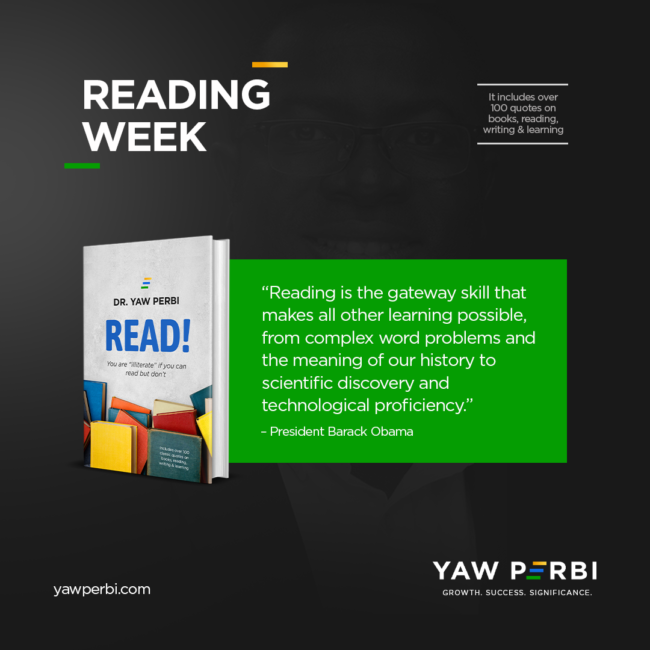
I Used Not To Like Reading. Two Statements Changed Everything.
I wouldn’t be where I am today but for books. I mean precious books like the Holy Bible (which I’ve read cover-to-cover about 10 times), Rich Dad Poor Dad (Robert Kiyosaki), The 7 Habits of Highly Effective People (Stephen Covey), The Purpose-Driven Life (Rick Warren), Before You Say I Do (Yaw Boamah), The 21 Irrefutable Laws of Leadership (John Maxwell), The E-Myth (Michael Gerber), The Prayer of Jabez (Bruce Wilkinson), Create Your Own Future (Brian Tracy), The Emotionally Healthy Leader (Peter Scazzero) etc. My life five years ago is totally different from my life now—and so was my life five years prior to that totally different—just because of the books I’ve read.
Consequently, for a decade-and-a-half now I’ve been a serious reading campaigner. Now, not only have I grown further fierce in campaigning for people to love reading, my wife and I have stepped up by stepping down. What I mean by that is, we’ve enhanced our campaign but decided to go further down to the age where humans are most pliable: childhood. And we began with our own seven children. This is the philosophy behind Perbi Cubs Library Services. You may find the story behind Perbi Cubs here.
But being a reading enthusiast, let alone champion, hasn’t always been so. I used not to like reading, at all! Then two statements hit me hard and totally shifted my paradigm, absolutely altering my way of thinking.
THE ‘RACIST’ & ‘TREMENDOUS’ STATEMENTS THAT CHANGED EVERYTHING
The first statement, I randomly encountered on the internet. I was but a youth then. As I confess in my book READ!, “I was so angry my intestines could have gushed out. If I were light skinned my face would’ve turned tomato-red instantaneously. Yet deep, very deep down my heart I knew there was a truth in this almost racist statement glaring at me from the computer screen.” This is what it said: “THE BEST WAY TO HIDE SOMETHING FROM BLACK PEOPLE IS TO PUT IT IN A BOOK!” Ah! Upsetting! Yet in many ways this is true, I’m ashamed to admit: We don’t read!
The other paradigm-knocking statement was Charlie ‘Tremendous’ Jones’ rather prophetic pronouncement: “You will be in five years where you are today except for the people you meet and the books you read.”
These two statements turned my life around to not only become a voracious reader and prolific writer, but an advocate of the same!
WHAT IS READING?
We all have read (or even still reading even right now) academic or technical texts to pass an exam or for promotion, for professional growth etc. That is not what I mean by my read campaign. When I speak of reading I mean leisure reading. Also known as “recreational reading, pleasure reading, free voluntary reading, and independent reading,” it is “independent, self-selected reading of a continuous text for a wide range of personal and social purposes. It can take place in and out of school, at any time” (International Reading Association).
Samuel Johnson shares the following sentiments: “A man ought to read just as inclination leads him; for what he reads as a task will do him little good.” I get him. Leisure reading must be voluntary and pleasurable–not just a chore–if it is to benefit us maximally.
WHY MANY ARE SCHOOLED BUT STILL “ILLITERATE”
Several of us who have learnt “ABCD…” and can practically function simply do not read. In my book READ!, first published in 2005, here’s my thesis: If you know how to read and you don’t, you are no different from the illiterate! The bottom line is the same: you both don’t read! That’s why the subtitle of the book is “You are an “illiterate” if you can read but don’t.” Many years ago Mark Twain put the same idea this way: “The man who does not read good books has no advantage over the man who cannot read them.”
CONCLUSION
If it’s any comfort to you, a guy who used not to like reading today reads several books at the same time! Even further, I’ve acquired this new habit of writing several books at the same time too! Something you need for your future to happen is hidden in a book near you. As they say at Perbi Cubs, “success is just a book away.” And it’s true. If you don’t believe Perbi Cubs or Charlie ‘T’ Jones, take it from me.

Black History Month | Why the Protests of 2020 Had a Sense Déjà Vu About Them
Here is the entire preface to the 2020 version of YouthPower! in Soweto for your enjoyment and edification. This book was first written 15 years ago upon a life-transforming visit to South Africa in 2005. The anti-racial protests in 2020 were like a 1976 déjà vu and inspired me to get this re-release going for today’s generation to remember and soldier on.
“It is better to die for an idea that will live,
than to live for an idea that will die.”
Steve Biko
The Definition of Black Consciousness, I Write What I Like, 1978
It is 2020. The pandemic year. The epochal events of this year, on both sides of the Atlantic, have had such significant parallels with the youth uprisings and protests in apartheid South Africa in 1976 that after procrastinating the republishing of this book for years I finally got the umph to do it.
“Police brutality.” “Systematic racism.” “Peaceful protests turned violent.” “We are dealing here not with a spontaneous outburst but with a deliberate attempt to bring about polarisation between whites and blacks.” “This government will not be intimidated and instructions have been given to maintain law and order at all costs.” Do any of these phrases and sentences sound familiar? Yet these are not from 2020; these are all 1976 words and phrases!
With the world slowed down, even locked down, we all had the time and bandwidth to take in the slow slaughter of an American young man, George Floyd, by those paid “to serve and protect” him. The aftermath of #BlackLivesMatter protests in the United States and around the world seemed like a coordinated tsunami. Perhaps no other year has there been more concerted protests against police brutality, systematic racism and no-nonsense towards anything or anyone glorifying an apartheid, segregationist, slavery or colonial past.
At a point, the confluence of 400th year anniversary of the first slave setting foot in America, a plague (COVID-19) and protests by the oppressed made me wonder if this was not a modern replay of the biblical Exodus, the liberation of Israel from Egypt.
Then just when things seemed to be settling down, #endSARS happened. Nigerian youth wouldn’t take the brutalization of their kith and kin anymore either. The well-organized air war (via social media) and on-the-ground protests did result in the dissolution of the notorious Special Anti-Robbery Squad (SARS) that had been unleashing untold mayhem on the Nigerian people, especially youth, for years. Some paid the ultimate price for daring to express their Youth Power! May they rest in peace. May their death bring life.
In all the standing up to, shouting out and marching against, the core demographic has of course been Young People. Youth Power! at work again; just as in 1976. In fact, my favourite picture of the 2020 protests in the U.S. so strongly correlates with a scene from 1976 although both events are seas and decades apart. On the streets of America in 2020 the youth held placards that read, “We are not our ancestors. We will fuck you up.” In Soweto, 44 years earlier, the youth had asserted similarly, “Our parents are prepared to suffer under the white man’s rule. They have been living for years under these laws and they have become immune to them. But we strongly refuse to swallow an education that is designed to make us slaves in the country of our birth.”
It seems to me that like the Boomer generation of 1976, the Millennial, Gen Y and Gen Z generations alive and kicking in 2020 have also taken seriously their mandate to leave the world better than they found it. “You see things; and you say “Why?” But I dream things that never were; and I say “Why not?”” [said a certain wise man]. I believe that was the Youth Power! mindset in 1976, replayed in 2020. Here’s to celebrating Youth Power! from Soweto to Minneapolis to Lagos to the ends of the earth.
POST SCRIPT
I am humbled by my very rich family history of Black story-telling. My grandfather, J.H. Kwabena Nketia, was an emeritus professor of ethnomusicology whose lifework was dedicated to documenting the songs and drum language of African peoples while my mother, Akosua Adoma Perbi, is a professor of history with a specialization in the slave trade, indigenous and trans-Atlantic. It seems my turn has come to continue a family tradition.
I can understand those in my generation who feel Black people are too yesterday-focused and are pushing for this month to be Black Future Month instead of Black History Month. A word of caution though: we must know our history well–although not dwell in the past–if we are to be and do today what will make our tomorrow better than yesterday. As a wise man once said, “Those who do not learn history are doomed to repeat it.” 2020 has proven that history tends to repeat itself.

American Shitocracy and African Shitholes
‘Shit hole’ status is not the preserve of any people group, state or nation. Seasons change. Kingdoms rise and fall with terrific and terrible leadership respectively. Great civilizations have come and gone. If Africa continues on a trajectory of principle-centred, values-based, effectual leadership and America continues on her trajectory of shit-based leadership for long enough the tables will turn!

“I’ll be watching because history is going to be made,” were Trump’s inspirational words to ginger his soon-to-be-desecrating supporters who forced their way into the Capitol to interrupt the democratic transfer of power. Photo credit: Roberto Schmidt/Agence France-Presse — Getty Images
Bit by bit we’ve seen the shroud of so-called American exceptionalism come apart. Rent piece by piece, she’s revealing her warts to a watching world, stuck at home. What she’s done well for over 200 years to conceal—and not wash her dirty linen in public either—a combination of democratized social media, a TRUMPeting emperor with no clothes and a plaguing pandemic have conspired to expose. Lynchings like George Floyd’s are not new; it’s the handy smart phones and social media apps at the finger tips that capture and broadcast these which are.
Last Wednesday’s attempted coup d’état at the U.S. Capitol was the nadir of the last four years’ declivitous decline from apparent democracy to real shitocracy. I am not one to use the s-word; I’m only playing on the words of the supposed most powerful man on earth. Many aspects of the attack on the ‘people’s house’ by armed rioters a.k.a. domestic terrorists dropped my jaws (and kept my mouth agape) but the most shocking was literally the filthiest of all: desecration of the House with faecal matter, well-known in ‘shit hole countries’ as ‘shit bombing’. Just when you thought America could sink no further.
The shit-hole-country-conferring president of the Divided States of America inspired this group of shit bombers.

Thieves of democracy scaling walls like thieves do, as in the words of the New York Times, “largely unimpeded by police as they stormed the Capitol.” Photo credit: Jason Andrew for The New York Times
Let me tell America(ns) how we, Africans, got shit holed: LEADERSHIP! A long string of shit hole leadership like you’ve now gotten in the Black House (it’s only painted white and so-called but we know it was built by Blacks). If Africa continues on a trajectory of principle-centred, values-based, effectual leadership and America continues on her trajectory of shit-based leadership for long enough the tables will turn! You know how I know? Because “everything rises and falls on leadership,” E-V-E-R-Y-T-H-I-NG, shit and all. And that is a principle; a timeless, fundamental law of the universe that is no respecter of persons: red or yellow, black or white.
‘Shit hole’ status is not the preserve of any people group, state or nation. Seasons change. Kingdoms rise and fall with terrible and terrific leadership respectively. Great civilizations have come and gone. And I mean, greater civilizations than America, and that dominated for much longer than the toddling USA. America could be tomorrow what we call “ancient Egypt” today. Or even the beggarly Greece today, yes, Socrates, Aristotle and Plato’s Greece of yestercentury. In the last decade Portugal found itself borrowing money from her former colony Angola.
Meanwhile, my Ghanaian-Canadian children today wonder what is so ‘Great’ about Britain. Brexit? As for America, in the last few weeks we’ve spent more time at our Family Altar repeatedly praying for political peace in America and for the eradication of ignorance and disease (COVID-19) there than we have prayed about any of these for Africa!
Now to my fellow Africans. In the light of how backward America has proven to be recently, perhaps it is beginning to dawn on you that we may not be as backward as they (and some others) would like us to think! After all, when our ancestors were building pyramids their European forebears were but Barbarians (note: barbarian or barbaric is still not a fluttering word in the English dictionary today).
At the very time when there were prolonged pre, para and post electoral tensions in America, even with a sitting president refusing to concede but rather raising false alarms of a rigged election, Ghana figuratively and literally came from behind to vote, certify results within 72 hours and has already sworn-in a new president (an occasion the American president nominated American officials to attend). Now, look who’s shit hole!
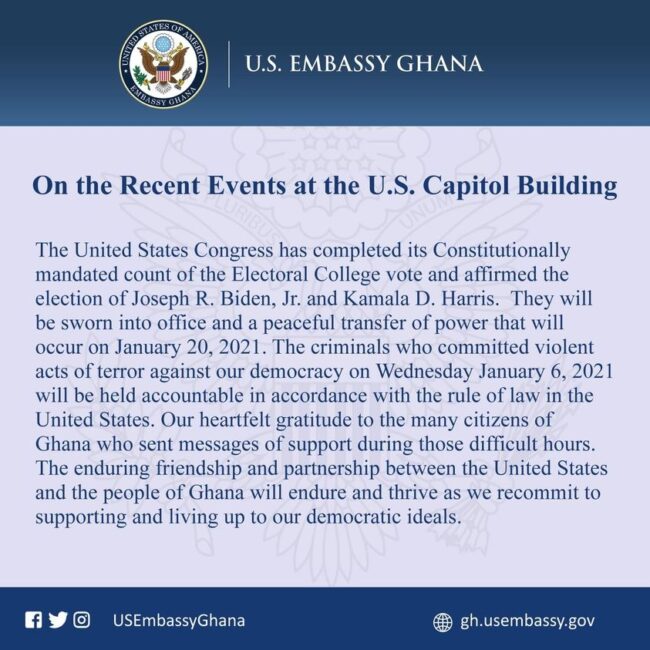
No one would’ve imagine such a notice from the U.S. Embassy in Ghana four years ago! “Our heartfelt gratitude to the many citizens of Ghana who sent messages of support during those difficult hours”? Wow!
Which is worse: being called shit hole or being shitty? It was America’s shitocracy that christened African countries as shit hole. But neither shitocracy nor shit hole is good enough for Africa or America. I have substantial interest in the prosperity of both peoples on both sides of the Atlantic–and so does the whole world stand to benefit. So upward and onward with godly, principle-centred, values-based, effectual leadership for the benefit of our peoples and to the glory of God. No more shit–shit holing, shit hollering or shit bombing. We were made for so much more than this.
Africa! America! African-Americans, arise, clean up and shine! Let our worst years be the last four; and our worst days among the last four too.
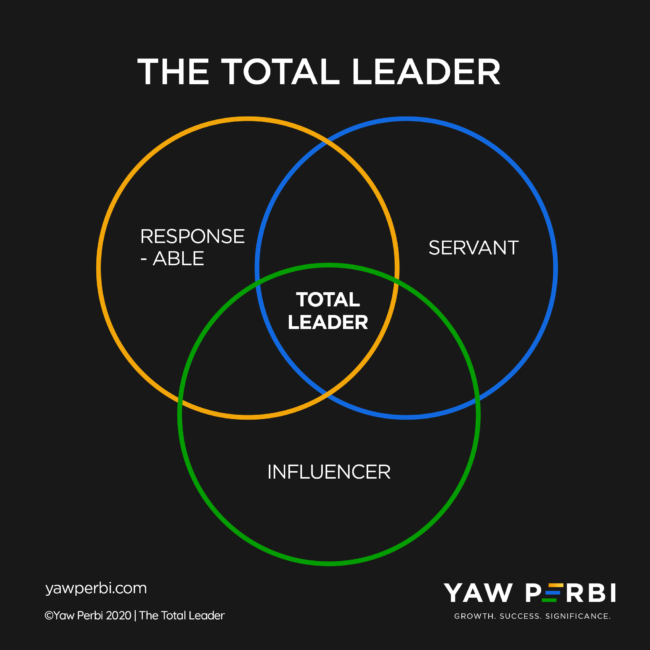
All these politicians are falling over themselves just to SERVE us?
I doubt it. I am skeptical that all these politicians are falling over themselves just to serve us, we the people. After a couple of decades of being a student of leadership, including a Masters in Global Leadership, I came to this simplicity at the far end of complexity that leadership is basically response-ability, service and influence. A total leader is and does all three. But even service has different degrees.
A few years ago some people were very cross with me after I mentioned on a live television interview on Good Evening Ghana that the then Ghanaian president wasn’t much of a leader (in terms of influence). He was very response-able, no doubt. I knew that quite well personally since we used to live in the same residential area and attended the same church. The honourable gentleman was a great servant as well–even as vice-president he was still volunteering to do such ‘menial’ tasks in the community. Such a role model in humility. But his charisma and ability to make things happen in and through others (influence) left much to be desired.
Of course there are those who are great public influencers but can’t even be response-able in their own marriage or toward their children. Such incomplete leaders are asked by the lawyer-turned-preacher, Paul, in the ancient texts, not to vie for leadership in the church. Here is the rhetorical question the trained lawyer poses: “for if someone does not know how to manage his own household, how will he care for God’s church?” A total leader is response-able, serves and influences. Now a focus on servanthood.
SERVANT-LEADER TAUTOLOGY
Ideally, the term ‘servant-leader’ should’ve been tautological as a leader necessarily must be one who serves. Unfortunately, more often than not, it isn’t so. Leadership is often anything but service. In fact, leadership is so much more synonymous with influence that when Robert Greenleaf introduced the term servant-leader around 1970 he literally mean servant-influencer. Here’s what he says in his The Servant as Leader essay back then:
The servant-leader is servant first. One wants to serve first; then one aspires to lead [influence]. This is sharply different from one who is leader [influencer] first, perhaps because of the need to assuage an unusual power drive or to acquire material possessions. A servant-leader focuses primarily on the growth and well-being of people and the communities to which they belong. The servant-leader shares power, puts the needs of others first, and helps people develop and perform as highly as possible.
THE MYSTERY OF MINISTERS
On a recent Lions Inspire Cubs hangout with children (7-14 years) to introduce them to leadership early, some of the cubs literally gasped when they heard me say that the ministers of state that throw their weight around are actually our servants. “Whaaat?!” Yes, minister is the same word as servant. Who could blame these children, for they have hardly seen as humble servants neither the ministers in politics nor ministers in pulpits. I often quip that if I ever became president of a nation I would change the term ‘ministers of state,’ in order to hear it afresh and for shock effect, to ‘servants of state.’
The last couple of months have been a heated political season on both sides of the Atlantic, particularly with my neighbours to the south (the United States border is barely 45 minutes from where I live in Montreal) and in my homeland Ghana. As I’ve seen the passion and commitment in the campaigning, counting of votes, recounting of votes, challenges in court etc. I can’t help but ask: All these politicians are falling over themselves just to SERVE us, we the people? Perhaps a very tiny fraction but largely no; it is mostly to serve their parochial interests. Even for those response-able influencers who are genuinely laying themselves down to minister to us as servant-leaders may I ask: what kind of servant will they be?
SERVANT? WHAT KIND?
Just as “love” is just “love” in English but has at least four variants in the Greek, the ancient Hebrew text is rich with a variety of words for “servant.” Four of these different hues of servant are Ehbed, Abad, Sakyir and Sharath. Let me explain.
1. LOVE SERVANT (Ehbed): This type of servant is totally sold out to those (s)he serves, not so much out of obligation and duty or for financial compensation but pure love. The Hebrews of old were not allowed to enslave their own. If any of their own people—Hebrew men or women—however sold themselves to someone (usually out of dire socioeconomic hardship) they were to serve their fellow Hebrew employer only for six years maximum. In the seventh year they must be let go free, liberally loaded with gifts of livestock, grain and wine. But there was a caveat: “…if your servant says to you, “I do not want to leave you,” because he loves you and your family and is well off with you, then take an awl and push it through his earlobe into the door, and he will become your servant for life (you may read the entire text here). The love servant is one at the complete disposal of the person(s) they serve out of love. Are you (or those you’re voting for) at the complete disposal of the people out of love?
2. SACRIFICIAL SERVANT (Abad): This one has given up a lot to serve. They are characterized by complete sacrifice. This is typically a servant who gives up personal rights, including inheritance, in order to work in the fields or tabernacle (see Numbers 18:7 and 23). The Levites of old were abads. As The Maxwell Leadership Bible puts it, “in a similar way, leaders must sacrifice their rights and stay surrendered to the cause.” Are you this kind of sacrificial servant-leader?
3. HIRED SERVANT (Sakyir): This is the quintessential ‘paid professional.’ In other words, a ‘hired hand.’ Irrespective of what they do, there is a clear understanding that they are hired per hour/day/week/whatever and will receive due compensation. Whether it is fair wages or not is not the object of this discussion; their service is paid for. Remember the love servant conversation above (under ehbed)? When a Hebrew sold themselves to work for another Hebrew they were to be treated as hired hands and then contract automatically ended after six years. It is after this they can choose to become a love servant (see Leviticus text). Unfortunately, the closest thing to a servant I see with many ministers of state and church alike is that of a ‘paid professional’. And you know corporate leaders are not there to serve either when they pay themselves fat salaries and juicy bonuses on the backs of suffering employees, even when their companies are struggling for survival! It’s the money and the trappings of the position that is the draw, not love (ehbed) or sacrifice (abad).
4. MENIAL SERVANT (Sharath): This is the down low of service. This is the most beautiful when done not because the servant-leader has no more nobler service to do but a choice to go down low for the sake of raising the people/mission up high. Sharath is the Hebrew word used to describe Joseph’s servanthood in prison (see here) and Joshua’s attendance to Moses as his aide (see Exodus text). A true leader must serve the people and the cause, irrespective of how down low the role may be. By the way, this same Sharath word in certain contexts can stand for worshipper.
MODELS: ANCIENT & MODERN
Politicians like Nelson Mandela are too few. I remember as a boy when he was released from prison in February 11, 1990 after 27 years! The whole town where I lived erupted with joy and the sound of cars honking was deafening. Mandela sure had influence–he was a leader. Of that day of freedom he said, “As I walked toward the prison gate and was among the crowd, I raised my right fist and there was a roar. I had not been able to do that for 27 years. It gave me a surge of strength and joy.”
But you know what else he had? The spirit of servanthood. That same evening when he spoke to a large crowd at the Grand Parade in Cape Town, he said, “I stand here before you not as a prophet but as a humble servant of you, the people. Your tireless and heroic sacrifices have made it possible for me to be here today. I therefore place the remaining years of my life in your hands.” I don’t know about you but I can’t help seeing an ebed, abad, sakyir and sharath all wrapped up in one in the man, his words and works–from prison to president.
The ultimate example of leader as servant is the greatest leader who ever lived, Jesus Christ. He called himself ‘Son of Man’ and did not just ‘talk servanthood’ but walked the talk. Anyone who could teach as he did and perform miracles and draw crowds of 15,000 some two millennia ago without social media sure had influence. It is he who called his followers who were jostling for political power, to sit at his right and left in their perceived imminent government of Jesus, and said to them:
“You know that those who are regarded as rulers of the Gentiles lord it over them, and their high officials exercise authority over them. Not so with you. Instead, whoever wants to become great among you must be your servant, and whoever wants to be first must be slave of all. For even the Son of Man did not come to be served, but to serve, and to give his life as a ransom for many” (Mark 10:42-45).
I can’t speak for leaders of other faith persuasions but for Christ-followers there is no choice but to love and live and lead like the ultimate servant-leader. Paul writes, “In your relationships with one another, have the same mindset as Christ Jesus.”
CONCLUSION
I initially wrote this piece with a holier-than-thou disposition thinking I was a reasonably good servant-leader myself only to get my bubble burst by my dear wife who gave me painful feedback that I needed to hear: “At home you are more like a boss-servant–a boss who tries to serve. You serve alright but only when you want and how you prefer to.” Ouch! I’m eating humble pie right now.
In the words of my mentor John C. Maxwell, “Leaders must never forget that God calls them to serve. If our Lord [Jesus] could wash His disciples’ feet as a sharath, then how could we frown at becoming an ebed?” So you too, take a long look at the list of four servant types above and a good look in the mirror: which kind of servant are you? Then linger awhile over the lengthy list of those longing for your vote and see whether they are preoccupied with status, salary and stuff or serving. True leaders serve their people towards their purpose; not their parochial interests. I am a recovering boss-servant.
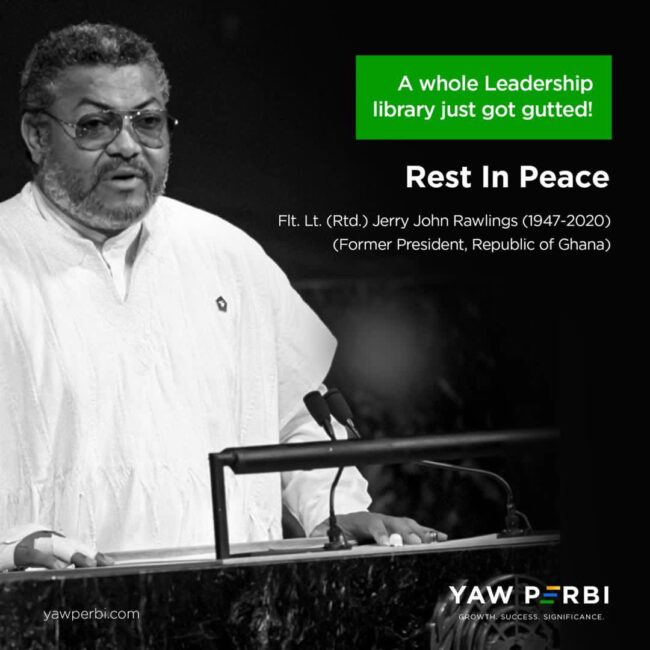
Oh, J J and the “Revolution”
While I hope Ghana’s former president Jerry John Rawlings does Rest In Peace, his passing has evoked many memories and a slew of strong sentiments–the good, the bad and the ugly. My father was Chief Accountant of the Social Security Bank at the time of J.J.’s ‘revolution.’ I have often touted my dad’s integrity. Here’s one of his recent reflections on how his integrity and God’s grace saved his skin during the days of the ‘revolution’, quite literally.
After the apparent unfinished business in 1979, JJ came back onto the public scene by ousting President Hilla Limann on 31st December, 1981. The mindset was people were corrupt; more corrupt than the public acknowledged, and far more widespread.
Soldiers entered our premises where we were staying, at a place called Pig Farm, in Accra. Word must have gone somewhere that our landlady Mame Boatema was hoarding cloth. Her trade was selling cloth at Makola, and there was a concept called “ hoarding”: some sellers used to keep some of the items for sale away from public view, partly in order to create shortages and hence sell what they had at higher prices, and partly, on a much lower scale, in order to pass them on to their favorite patrons and customers. It did not matter whether the things in your possession were legitimately acquired by you or not; if the quantity constituted more than a certain perceived number, you were branded as hoarding, and you suffered consequences. Consequences; various consequences, from outright seizure of the items, to sometimes seizure plus beatings.
On this evening, we had closed from the office and were home when all of a sudden soldiers entered our house. We were then occupying the lower floor of a two-storey building, Mame Boatema the wife of the landlord occupying the top floor. Apparently the soldiers had climbed up, done their search, found nothing and upon descending opened our front door without knocking and entered. Ma gave them a questioning look; I signaled to her to keep calm. They went to every room, found nothing of what they suspected, and left.
When they left, Mame Boatema went to the entrance of the house and shouted to all who were in hearing range, and somehow addressed to neighbours across the road whom she suspected may have sent false information to the soldiers that she was hoarding cloth, how disgraceful they had turned out to be, seeing that nothing untoward was found in the search.
That was just one domestic scenario. There were several in several places, many receiving beatings etc. Soldiers were all over the place, with an agenda they only knew, but mainly looking for “ enemies of the revolution”: namely people who were profiteering.
I was then chief accountant of the Bank ( SSB), one of the departments under my purview being the Stores. SSB was a very popular bank those days. It had been set up by the late Dr Appiah as a subsidiary of the national pension institution SSNIT, and was intended to help fill some identified gaps in the banking industry. Its department called Consumer Credit Department specifically set up to offer workers loans to buy consumables – fridges, freezers, cookers etc- was very popular with workers. The inflation in the country was not only in double digits but also the changes were so rapid that workers were no longer able to source loans easily to buy their needs. Members of staff felt very much appreciated by members of the public- and apparently also envied and hated by some – notably those who could not access the credit for one reason or the other.
Another aspect of SSB’s uniqueness was its opening of cocoa branches. These were new branches at cocoa farming and buying centres to assist cocoa farmers offer their cocoa sales receipts to the Bank for cash/credit. Prior to this, hard-working cocoa farmers after harvesting and selling their cocoa would only be given sales receipts which they had to hang on for very long periods of time and at the mercy of the traditional banks which were not many to start with, nor operating in thick rural areas. This made the Bank also very much appreciated by cocoa farmers.
In addition to this, warehousing finance whereby importers of goods, usually consumables, could access funds from the Bank usually to finance customs and clearing charges of imports by depositing the products in the Bank’s warehouse and have them released in bits based on how they were selling the items and paying the credit in installments was a very welcome initiative in banking.
The Bank’s warehouse was located at the North Industrial Area in Accra, while the Head Office where my office was was at Kokomlemle. On this occasion, I was told that soldiers had gone to the Warehouse and beaten one of the storekeepers. I wondered why, but almost immediately added “ If he did not do anything wrong, would they beat him? Maybe they asked to open the gates for them to see what was inside and he refused.” Little did I know that I was soon to eat back my own words later that night: being beaten before being heard.
People mingled around the frontage of the Bank wondering what was going on; it was near closing time, and I had also closed and joined the rest of the staff in wonder. Before long a military vehicle Pinz Gauer pulled up and with a couple of soldiers and policemen at the back drove up to the front of the Bank. While we were all at a loss as to what was up, I noticed I was pointed out and signaled to approach the vehicle. A soldier asked whether I would be able to answer some questions on the items in the warehouse and I confidently said “Yes.” I was asked to climb into the vehicle.
It was obvious it was most probable I was not going to drive home myself in my car that evening so I gave my car keys to one of the staff I identified and climbed in. We drove off, not knowing where they were taking me. We first went to a base near 37 Military Hospital, sat in the vehicle, wondering what was next. After a long time, and with dusk well settled and darkness in the atmosphere, we drove on, me little knowing where the destination was.
While going, some of the soldiers and policemen were exposed their beef as they expressed their disappointment with not being able to get some of the consumer items when they applied. I kept quiet, not being the manager in charge of that credit, but also being very much aware that no amount of defence would assuage their bitterness and anger.
Soon we were to turn into Burma Camp, and deeper into what I later got to know was Gondar Barracks. “Meat come! meat come!” were shouts that greeted us from soldiers at the camp, and apparently a couple or so other Pinz Guarers already parked ahead of us. “Meat,” as in reference to people who had been sent to the barracks who would be beaten. The prospect of beating civilians was being likened to enjoying some beef or similar juicy meat. I saw soldiers lifting their boots into the bodies of people, including their groins and any other part of the body they could reach with their legs.
Sooner or later it came to my turn. There was an office not far from the road where the vehicle had parked. When I was called, or rather signaled to enter the office, I descended from the vehicle and I heard one of them ask me to remove my eye glasses. Before I knew what was happening, two hefty slaps landed on my cheeks from behind me. I tried to make my way to the office, somehow convinced that there would be some respite there. It was like fighting unknown and unseen forces. While I tried hard to force my way to the office, I felt being restrained with some bearing. Eventually I made my way to the office.
An officer seated at a table asked of my designation . When I told him, it turned out that I was not one they were looking for. They asked me to go back to sit in the vehicle to be driven back. While waiting in the vehicle, some of the soldiers who had become somewhat apologetic said some people had even lost their lives so … apparently to console me that my fate could have been worse. When we departed to be sent to 37 area to find our way home, I opted to get off as soon as we exited the Burma Camp, and fortunately found a taxi that took me home to Pig Farm. Those were days of curfew: no one was expected to be on the streets from 6 pm to 6 am, later to be adjusted to 9 pm to 6 am.
A member of my staff Aggrey Fynn, himself a retired naval officer who was Stores Manager had also been sent to the barracks. I could only pray as to how he was going to be treated. Nursing pains in the cheeks the next few days and a red eye seemed a small price to pay for what was in store for the country, unknown to many, including even those who appeared to be “ in charge.”
Bank forgeries three years later and how some civilians were shot to death and my escape from it is another story altogether.
Reindorf B. Perbi
17 November, 2020
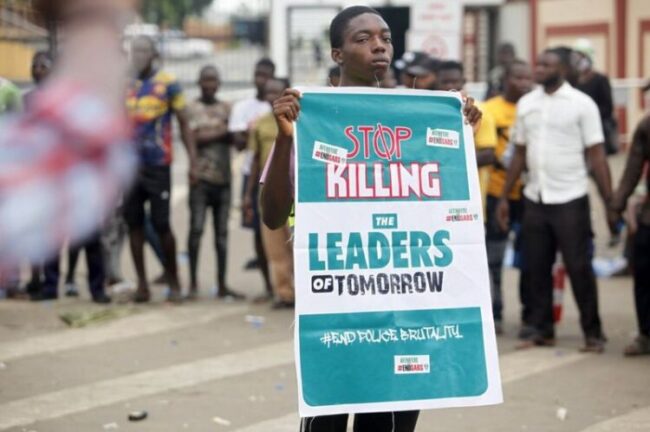
Youth Power!
Sixteen years ago I subtitled my ‘Youth Power!’ book, “unleashing the potential of the most powerful people on earth.” This pandemic year is giving us ample proof.

Nigerian youth at the #EndSARS protests. Youth are leaders of today; not just tomorrow. Photo credit: EPA
The recent George Floyd protests in the United States of America and around the world and current #EndSARS campaign in Nigeria against notorious police brutality have reignited my convictions about Youth Power!, well-documented in a 2004 book by that title. “This [#EndSARS] protest has been largely driven by young people,” I just heard from a CNN report.
YouthPower! is a revolutionary paradigm which seeks to start a fire in Young People for them to get their act together and do something significant with their lives…Now! For the last 16 years I have “been preoccupied with looking for evidence of Youth Power! all over the world and in all spheres of human endeavour since introducing that paradigm-shifting concept” in the mid 2,000s. Some other books that I have written to document such stories have included 15 Inspiring Young People and 15 Successful Global Businesses Young People Built, from Amazon to Time magazine.
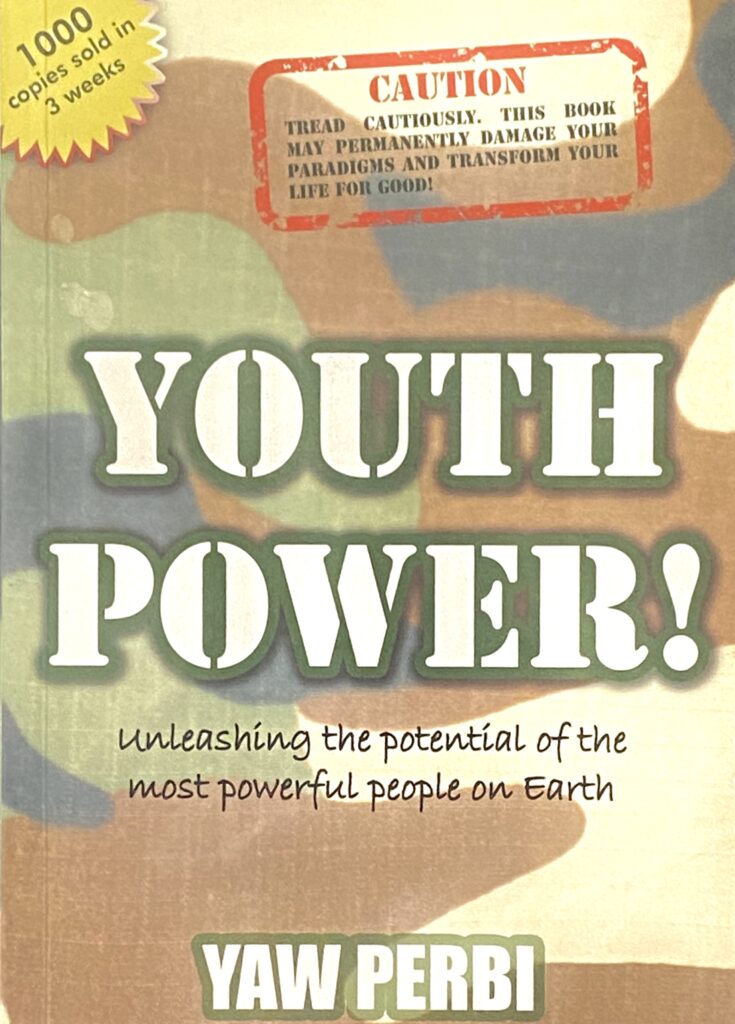
The 2004 publication YouthPower! had a foreword by Dr. Mensa Otabil
Young people have a lot going for them; youth have a lot of power! First, the numbers–there are more young people on earth than ever before in the history of the world! And that is power. But wait, there’s more. Young people have influence, the ability to control people and situations–even holding governments to ransom. That is power. Young people have incredible talents and special abilities which peak at this time of their lives. We have seen how they have utilized their tech savviness and power of mobilization to literally get the government of Nigeria to dissolve the said Special Anti-Robbery Squad (SARS) they’re protesting against on 11th October 2020. Shall we talk about the sheer passion, strength and energy of youth? Throughout the history of the world, young people have touched, shaped and shaken the world in politics, academics, business, sports, arts/entertainment etc.
More often than not, though, all this power is stored in the form of potential. The rest of the book Youth Power! is full of keys to unlocking all this power in terms of principles, the proto principle, purpose, planning, preparation, people, places, practices, pruning puny behaviours and ultimately how all of this results in pay.
YOUTH POWER! IN AFRICA
In 2005, the year after Youth Power! was published and widely distributed in Ghana, I was on a break in South Africa, after failing my final year medical school exams in Surgery. A pilgrimage to Soweto inspired me to write “a historical and tourist account of how Youth Power! that broke the back of apartheid in South Africa.” That sequel is entitled “Youth Power! in Soweto.” For the whole year I served as a doctor-captain with the United Nations Operations in Cote d’Ivoire, it was my joy and pleasure to walk scores of Ivorian Young People at the Université de Bouaké through the paradigm and practice of Youth Power! They even run a contest, translating the book into French.
Today’s protests remind me of the eternal words of one of the young student protestors back in apartheid South Africa in the late 1970s. You can see those words becoming flesh in today’s young protestors also, from Washington to Lagos:
“Our parents are prepared to suffer under the white man’s rule [or any form of injustice and brutality for that matter]. They have been living for years under here laws and they have become immune to them. But we strongly refuse to swallow an education [or whatever] that is designed to make us slaves in the country of our birth.”
As I participate in hash tagging, donating and encouraging the strong network of The HuD Group (publishers of the original Youth Power!) in Nigeria and around the continent of Africa to keep pressing for positive change, I look forward to adding to the thick annals of Youth Power!, yet another sequel: the contemporary history of Youth Power! in Nigeria.


